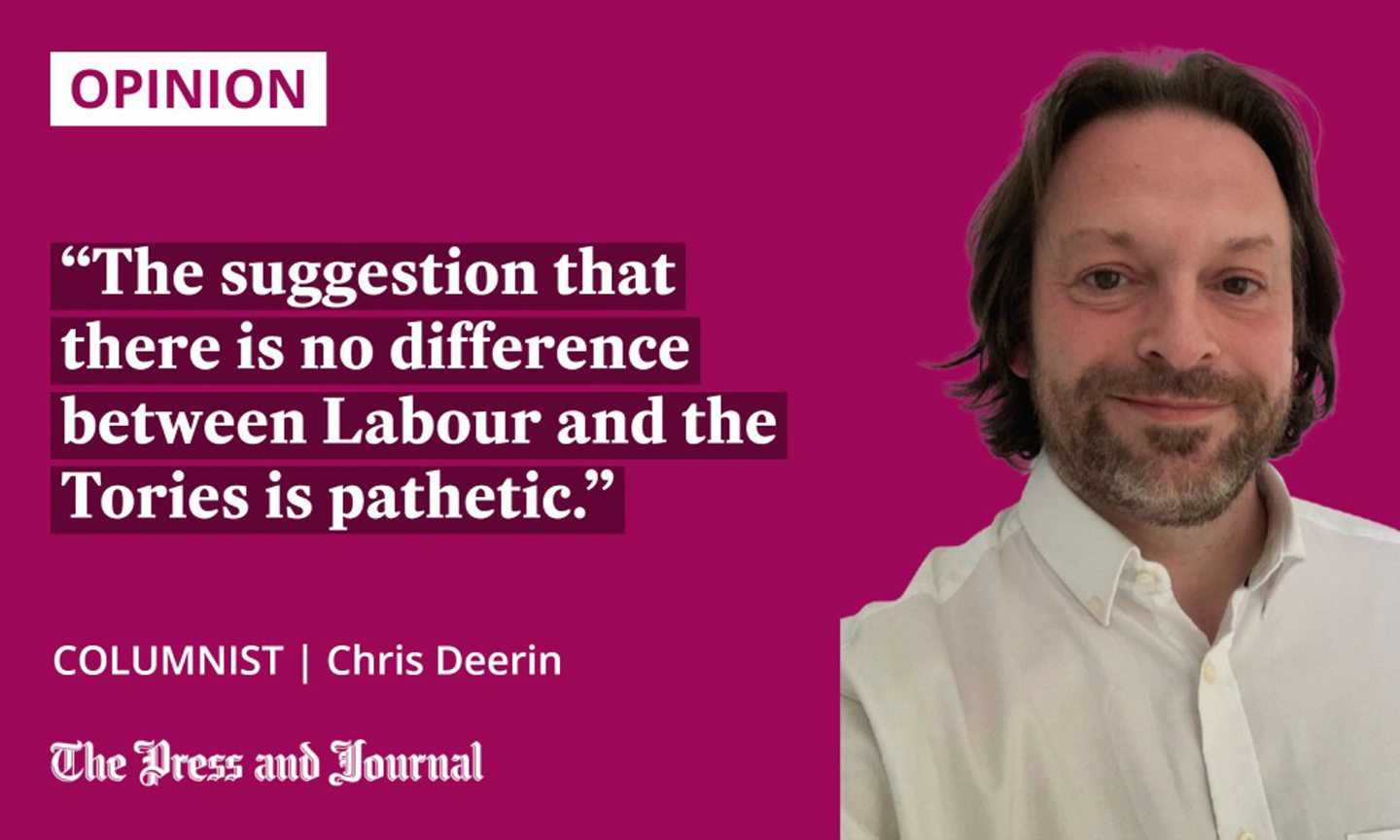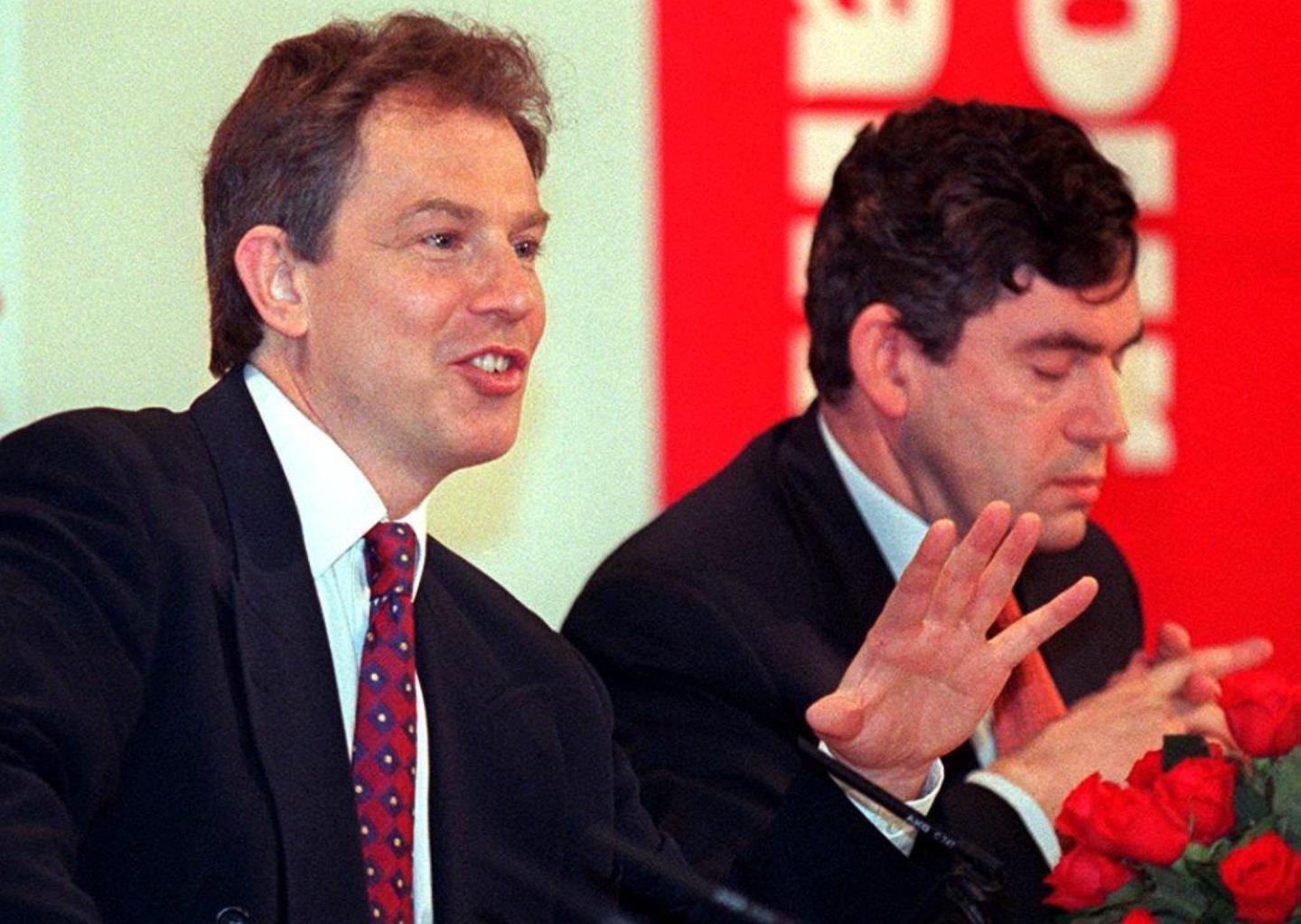If you were to listen to the SNP, there is little point voting Labour in next year’s general election.
Keir Starmer leads a party of red Tories, will do nothing to fix Britain’s or Scotland’s problems, and is committed to maintaining the most egregious of the current government’s policies.
Get used to hearing this self-interested guff repeated ad nauseam for the next year or so. In a speech at the weekend, during a visit to Dundee as part of his “summer of independence” tour, First Minister Humza Yousaf claimed that “voters are suffering at the hands of a cruel Tory government who see Scotland and its people as an afterthought, and a pro-Brexit Labour Party who refuse to reverse the most damaging Tory policies and are completely bereft of any positive vision for the future.”
Starmer’s resistance to scrapping the two-child benefit cap was “a betrayal of his own party and values,” Yousaf said.
It’s worth pointing out that the Nationalist government could use its devolved powers to tackle the child cap if it so desired. That would require finding a few hundred million quid, either by diverting money from core public priorities such as the NHS or the education system, or by raising taxes even further above UK levels than they are at present. Easier, instead, to shout at the other guy.
It’s also important to remember that the Nats are panicking because they’re in a mess, and about to lose a bunch of their most important seats to Labour.
 There’s nothing new in Labour leaders, especially the rare winners, taking flack from those who regard themselves as true bearers of the authenticity torch. Harold Wilson, who had been the left’s great hope, quickly found himself in bad odour due to his support for the American war in Vietnam, his economic programme, and his policy on immigration.
There’s nothing new in Labour leaders, especially the rare winners, taking flack from those who regard themselves as true bearers of the authenticity torch. Harold Wilson, who had been the left’s great hope, quickly found himself in bad odour due to his support for the American war in Vietnam, his economic programme, and his policy on immigration.
Tony Blair was never accepted by the purists. He understood he never would be and, instead, to appeal to the middle ground of voters where elections are won, ran against both the unpopular Conservative government and the unreconstructed members of his own party, securing three huge majorities.
To govern, you first have to win. Starmer needs support from people that not so long ago opted to leave the EU, a majority that included many Labour voters who switched to Boris Johnson in 2019 in order to “get Brexit done”.
I’m no fan of Brexit or its unfolding consequences, but the idea that the Labour leader should go into the election on a vow to take Britain back into the EU is, quite frankly, insane. First, it is a guaranteed way to lose that election.
Second, only pro-EU zealots could possibly think it sensible for the country to perform such a screeching U-turn so soon after leaving. It would be a national humiliation, destroy what’s left of our global credibility, and we would have to accept unfavourable and expensive terms: wave goodbye to the famous rebate, for starters.
Starmer is no Brexiteer – quite the opposite – but he understands the above. Any pragmatic leader, any possible prime minister, would adopt the same position. A return to EU membership, if it ever happens, will be the work of decades.
On the two-child limit, it simply matters more at this stage of the political cycle that Labour maintains its hard-won reputation for economic discipline. The cap is only one of an almost endless range of causes, all involving higher state outlay, that the left would like to see addressed immediately.
Every extra spending commitment made by Labour is totted up by the Conservatives, who will be ready in the election campaign to roll out the supposed astronomical bill facing taxpayers. That’s what happened to Jeremy Corbyn, who was unsurprisingly and deservedly crushed as a result.
New Labour achieved so much, despite the naysayers
The suggestion that there is no difference between Labour and the Tories is pathetic. It was flung at Blair and even Gordon Brown after they decided to stick to Conservative spending plans in their first two years of government. They were cautious then because they were used to losing heavily on a traditional Labour platform.
And what did New Labour achieve? Well, it’s a long list, but it included the Good Friday Agreement, the creation of the Scottish parliament and the Welsh assembly, the introduction of the minimum wage, hugely increased investment in public services and benefits, the reduction of NHS waiting lists, a 75% cut in youth unemployment, a new right to paternity leave, and the scrapping of Section 28. As chancellor, Brown brokered a deal which saw 18 of the world’s poorest countries have their debts to the World Bank and the International Monetary Fund wiped out completely.
And at least Blair became PM at a time of healthy economic growth. Starmer will take over at a grim moment in our history: truly, there is no money left. He faces a torrid time battling to restore growth, bring trust back to politics, stabilise and reform public services, and repair our international relationships. He will make mistakes.
He will attempt all this amid constant sniping from his own impotent left wing, Scotland’s desperate separatists, and outraged Tories, for whom nothing will ever be good enough. But Starmer, like Blair and Brown before him, will do so as a winner, and as a proper Labour man.
Chris Deerin is a leading journalist and commentator who heads independent, non-party think tank, Reform Scotland


